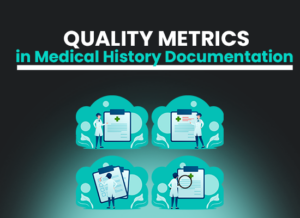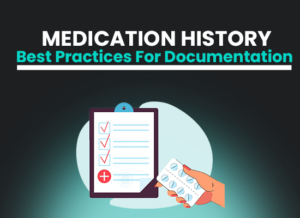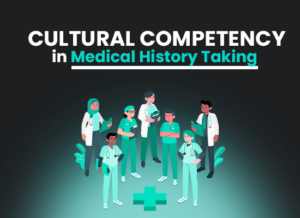What is a Hospital Management System and How is HMS Good for Businesses?
- November 1, 2024

Table of Contents
A hospital management system is very important because it helps hospitals run smoothly and efficiently. This system organizes patient information, doctor schedules, and medical records in one place, making it easier for doctors and nurses to provide the best care.
It also reduces mistakes, saves time, and ensures that patients get the right treatment quickly. In short, a hospital management system makes healthcare faster, safer, and more organized for everyone involved.
What is a Hospital Management System?
A Hospital Management System (HMS) is a digital tool that helps hospitals manage daily operations smoothly. It covers patient registrations, appointment scheduling, billing, and medical records. By bringing everything under one system, it makes hospital tasks faster and more organized.
HMS connects different departments, like reception, billing, labs, and pharmacies, making information sharing quick and secure. It reduces the chances of errors by keeping accurate records and reducing paperwork. This helps hospitals improve efficiency and focus more on patient care. Global Healthcare IT market expected to reach $728.63 billion by 2029 at a CAGR of 15.24% from 2024-2029.
Examples of tasks an HMS can simplify include patient check-ins, lab report delivery, and medication tracking. For instance, a doctor can quickly access a patient’s previous medical records and prescribe the right treatment without delays.

Try it - Love it - Buy it
Avail Our Free Trial Now!

Why Hospital Management Systems Are Needed Today?
Hospitals today are much busier, making it hard to manage operations manually. HMS is needed to handle large amounts of patient data and streamline processes. This system helps healthcare providers save time and focus on patient health.
With advancements in technology, patients expect fast and smooth healthcare services. An HMS allows hospitals to meet these expectations by reducing wait times and enhancing communication. It also keeps sensitive patient data secure, following privacy guidelines.
For instance, in large hospitals, HMS helps doctors and nurses access up-to-date patient records and treatments from any department quickly, ensuring patients receive timely care without mistakes.
Why Do Hospital Management System Software Matter to Businesses?
Hospital Management Software benefits healthcare businesses by improving efficiency and service quality. Hospitals can handle more patients and reduce operational costs with an organized system. It also cuts down on manual paperwork, allowing staff to focus on patient care.
The system also enhances patient experience, a crucial factor in competitive healthcare markets. Satisfied patients are more likely to return and recommend the hospital, boosting its reputation and revenue. The healthcare IT market is projected to grow from USD 312.92 billion in 2024 to USD 981.23 billion by 2032, exhibiting a CAGR of 15.4% during the forecast period.
For example, a hospital that uses HMS can keep better track of billing, ensuring accurate and timely invoices, which helps build patient trust and supports business growth.
Smart Medical History as a Hospital Management System:
Smart Medical History in HMS makes it easy to access patient information from past visits, including treatments and prescriptions. This helps doctors make better decisions quickly and avoid repeated tests. It also saves patients from the hassle of explaining their history every time.
This feature benefits both patients and healthcare providers by keeping all medical information in one place. It reduces the risk of incorrect treatments or wrong medication prescriptions. Doctors can review past allergies or past treatments easily, improving patient care quality. They allow a free trial of SMH before someone purchases their product.
The global Hospital Management System (HMS) market size reached $40 billion in 2023. For instance, if a patient is rushed to the hospital, Smart Medical History allows doctors to see their previous health conditions and allergies, ensuring they receive the right treatment immediately.
Can a Hospital Information Management System be Automated?
Yes, many parts of a Hospital Information Management System (HIMS) can be automated to save time and reduce human error. Automated scheduling, billing, and reporting make tasks faster and more reliable. It also minimizes waiting times for patients.
Automation ensures smooth coordination between departments like labs and pharmacies, as test results and prescriptions are shared digitally. This helps hospitals manage patient flow efficiently, especially during peak hours. The HMS market is projected to grow to $60 billion by 2028.
For example, if a patient’s lab test is complete, the HIMS can automatically update the doctor’s dashboard, so they know results are ready without delays, allowing for faster diagnosis and treatment.
Are Software for Hospital Management Cheap?
Hospital Management Software costs vary, but affordable options are available for small and large healthcare facilities. Small clinics can use basic systems to manage appointments and billing, while larger hospitals may invest in advanced systems for complex needs. However, the return on investment makes it worth the cost.
HMS saves money over time by reducing paperwork, errors, and operational costs. With digital records, hospitals spend less on physical storage and administrative tasks, ultimately saving resources. Costs also depend on features and the level of customization needed.
For instance, a small clinic may use an affordable HMS to manage patient scheduling, reduce receptionist workload and improve patient satisfaction without needing a big budget.
Benefits to Reap from a Hospital Management System:
A Hospital Management System brings many benefits to hospitals, making them more efficient and reliable. It simplifies data management, improving patient care by providing quick access to health records. HMS also reduces paperwork, saving staff time and improving organization.
The system helps ensure patient data privacy, meeting industry regulations for data security. It also improves communication between departments, which is essential for accurate and fast treatment. Hospitals with HMS can better handle patient traffic, improving the overall experience.
The Compound Annual Growth Rate (CAGR) for the HMS market from 2024 to 2028 is estimated at 8%. Examples of HMS benefits include:
- Faster patient check-ins and reduced wait times.
- Accurate billing and timely payments.
- Secure digital records, minimizing data breaches.
- Efficient coordination between doctors, labs, and pharmacies.
- Easier appointment management, reducing double bookings.
How Do Businesses that Opt for Hospital Management Software Grow?
Businesses that use hospital management software (HMS) often experience smoother operations. By automating tasks, they reduce manual errors and save time. This efficiency allows staff to focus more on patient care, enhancing the hospital’s reputation.
When tasks are streamlined, businesses can also cut down on operational costs. Improved management of appointments, billing, and records leads to fewer delays. This can make patients more satisfied and likely to return or recommend the hospital. 85% of hospitals have adopted Electronic Health Records (EHR) as part of their HMS.
For example, a small clinic using HMS was able to reduce wait times by 20%. This increased patient visits per day, allowing for quicker growth and a larger client base.
Is Hospital Management System Software Easy to Use?
Yes, many hospital management software options are designed to be user-friendly. These systems come with simple interfaces and easy navigation to ensure staff can use them with minimal training. This feature is particularly helpful for medical staff who have limited time for tech learning.
Most HMS providers also offer training or tutorials for new users. This makes it easier for staff to get used to the system quickly. The user-friendly nature helps in quick adoption, making day-to-day tasks faster.
For example, a new hospital adopting HMS software noticed that their staff needed only two days of training to operate it smoothly. This swift adaptation saved time and boosted productivity.
What Hospital Management Software Solutions Exist Today?
60% of hospitals are utilizing cloud-based HMS solutions. Various hospital management software solutions are available today to meet different needs. Some focus on managing patient records, while others handle billing, scheduling, or inventory.
- Electronic Health Record (EHR) systems: These keep track of patient history and medical records.
- Practice Management Software (PMS): Helps clinics and hospitals with scheduling, billing, and staff management.
- Laboratory Information Management Systems (LIMS): Specifically used in labs to manage samples and test results.
- Patient Relationship Management (PRM): Enhances patient experience and manages communication.
For example, a hospital using EHR and PMS together has improved both patient record accuracy and appointment scheduling, resulting in better service.
| Feature | Electronic Health Record (EHR) systems | Practice Management Software (PMS) | Laboratory Information Management Systems (LIMS) | Patient Relationship Management (PRM) |
|---|---|---|---|---|
| Patient Record Management | ✔ | ✔ | ✘ | ✔ |
| Appointment Scheduling | ✔ | ✔ | ✘ | ✘ |
| Billing & Invoicing | ✔ | ✔ | ✘ | ✘ |
| Lab Test Tracking | ✘ | ✘ | ✔ | ✘ |
| Patient Engagement | ✔ | ✘ | ✘ | ✔ |
| Data Integration | ✔ | ✔ | ✔ | ✔ |
| Inventory Management | ✘ | ✘ | ✔ | ✘ |
| Data Analytics | ✔ | ✔ | ✔ | ✔ |
What are Some Hospital Management Software Features?
Hospital management software comes with several essential features. It allows for easy scheduling of appointments, which helps avoid overcrowded waiting rooms. Another important feature is billing management, making it easier to track payments and expenses.
Inventory tracking is also commonly included in HMS, ensuring the hospital has the necessary supplies at all times. Many software solutions also offer electronic record-keeping, making it simple to retrieve patient data. Implementing an HMS can lead to average cost savings of $1.2 million annually for hospitals.
For example, a hospital using HMS with all these features reduced billing errors and maintained a steady supply of necessary medicines. This improved their efficiency and patient care.
How Much Does Hospital Management Software Development Cost?
The cost of developing hospital management software can vary greatly. Simple software with basic features may be affordable, while complex systems with advanced functionalities cost more. Custom software usually requires a higher budget because it’s tailored to specific hospital needs.
Other factors that affect cost include the time taken to develop, the features included, and the development team’s location. Hospitals looking for high security or integration with other systems may also face additional costs.
For example, a small clinic opted for basic HMS, spending around $5,000, while a large hospital with customized needs spent $50,000 for a more comprehensive system.
Can a Software for Hospital Management Acquire Better ROIs?
Yes, hospital management software can offer better returns on investment (ROI). By cutting down on manual labor and errors, it saves time and money. This helps hospitals reduce operational costs, improving their profitability over time. The average Return on Investment (ROI) period for HMS investments is 18 months.
Additionally, better patient satisfaction through smoother services means repeat visits and referrals. Enhanced reputation can attract more patients, leading to an increased income stream for the hospital. User satisfaction rates with HMS are at 90%.
For example, a hospital reported a 25% reduction in operational costs within six months of implementing HMS. This led to a quicker ROI, demonstrating how effective the software was.
What are Some Common Types of Hospital Management Software?
There are different types of hospital management software available, each serving a unique purpose. Some focus on clinical management, while others cover administrative functions.
- Clinical Management Systems: These are focused on patient diagnosis and treatment records.
- Administrative Management Systems: Used for managing hospital staff, finance, and billing.
- Pharmacy Management Systems: Specifically tailored for managing pharmacy inventory and prescriptions.
- Radiology Information Systems: Manages imaging records and integrates with radiology machines.
For instance, a radiology center using a Radiology Information System (RIS) noticed improved organization and faster report processing times, making the center more efficient.
Hospital Management Software for Enterprise:
Hospital management software for enterprise-level hospitals is designed to handle large volumes of patient data and streamline hospital operations. It integrates various departments, including administration, billing, and patient care, making data accessible across the organization. This software helps hospitals provide seamless and organized care to patients.
55% of HMS implementations occur in public hospitals. Benefits of Enterprise Hospital Management Software:
- Centralized data storage and access for easy retrieval of patient information.
- Enhanced efficiency in billing and appointment scheduling.
- Improved communication among hospital departments.
- Increased patient satisfaction through faster and more accurate service.
- Strong data security measures to protect sensitive patient information.
An example of enterprise-level software is Cerner. This platform allows large hospitals to manage patient records, schedule appointments, and keep track of billing efficiently.
Does Using Hospital Management Systems Actually Help Doctors?
Hospital management systems can significantly help doctors in managing patient information and daily tasks. By having a centralized system, doctors can quickly access patient histories, test results, and medication records. This saves time and allows them to focus more on patient care rather than administrative tasks.
With these systems, doctors can easily collaborate with other departments, such as labs or radiology, for better treatment plans. It also helps in reducing human error by providing accurate information on medications and treatments.
For instance, Epic Systems is a popular choice among hospitals in the U.S. It provides doctors with tools to access patient records and collaborate with different specialists, making their workflow more efficient and organized.
What are Some Cheap Hospital Information Management Systems?
Hospitals looking for budget-friendly software solutions have options that offer essential features without a high price tag. These affordable systems can include appointment scheduling, billing, and patient record management. While they may lack advanced features, they still provide the core functionality needed to run a hospital smoothly.
Some inexpensive hospital information systems offer cloud-based options, which can be cheaper and require less infrastructure. This makes them ideal for smaller healthcare facilities with limited budgets.
45% of hospitals are using mobile HMS solutions. Budget-Friendly Options:
- Smart Medical History – SMH costs less and provides effective medical history for doctors.
- Simplex HIM – provides basic patient record management.
- MedSys Lite – offers easy appointment scheduling and billing.
- ClinicOffice – affordable with essential features for small hospitals.
- SoftClinic – known for simple and cost-effective software solutions
Getting Specialized Management Systems at Lower Costs:
Specialized hospital management systems can help different departments, like radiology or pharmacy, perform more effectively. These systems are tailored to meet the unique needs of each department, enhancing efficiency. However, specialized software can be costly, so finding affordable options can benefit smaller hospitals.
Some vendors offer specialized systems with modular pricing, meaning hospitals pay only for the specific features they need. This makes it easier to get customized solutions without spending too much.
Affordable Specialized Options Include:
- eHospital Systems – with modular pricing for custom setups.
- EZDERM – affordable software for dermatology departments.
- Smart Medical History – easy to use with variable pricing plans
- LabWare – laboratory-specific management features.
What are Hospital Facility Management Software?
Hospital facility management software is designed to help hospitals manage their physical facilities, such as buildings and equipment. It can monitor maintenance schedules, track equipment usage, and manage space allocation. These tools keep hospital operations running smoothly by ensuring that resources are available and well-maintained.
Facility management software can also handle safety and compliance requirements, which is critical for hospitals. It often includes features for asset tracking, helping hospital staff know the location and status of equipment.
Did you know that HMS implementation has resulted in a 25% increase in patient throughput.
An example of this is FMX software, which offers asset management, maintenance scheduling, and safety compliance tracking to keep hospital facilities in top condition.

What Do We Know About Hospital Patient Management Software?
Hospital patient management software helps in tracking and managing patient journeys within the hospital. It includes admission, discharge, treatment, and follow-ups, keeping all information in one system for easy access. This software helps hospitals provide organized and timely care to patients.
Patient management systems often include appointment scheduling, test result tracking, and patient communication tools. This ensures that patients and staff are always updated on treatment progress and follow-up schedules.
An example is MedicsCloud, which allows hospitals to manage admissions, discharges, and patient communications, creating a smoother experience for both patients and staff.
Hospital Schedule Management Software in USA:
Administrative costs are reduced by 30% due to HMS implementation. Schedule management software helps hospitals in the USA manage appointments, staff schedules, and room bookings efficiently. It prevents scheduling conflicts and ensures that all resources are used effectively. This software is especially helpful for large hospitals that need to coordinate schedules for many departments.
Benefits of Hospital Schedule Management Software:
- Reduces wait times for patients by streamlining appointment scheduling.
- Helps in managing staff shifts and reducing staffing conflicts.
- Keeps track of room and equipment availability.
- Ensures doctors’ schedules are optimized for better patient flow.
An example is QGenda, used widely in the USA. It helps hospitals coordinate schedules across various departments, making sure resources are used effectively.
Hospital Patient Management Systems in USA:
In the USA, patient management systems are essential for hospitals to provide high-quality, organized care. These systems handle patient registration, billing, and treatment tracking in a single platform. They help hospitals manage each patient’s experience from admission to discharge.
These systems also assist in maintaining accurate patient records, improving the overall hospital workflow. Many hospitals prefer these systems for their ease of use and ability to integrate with other hospital systems.
An example is Kareo software, which offers complete patient management features, including billing, patient check-ins, and record keeping, tailored for hospitals across the USA.
The Top Hospital Management Software:
Hospital management software (HMS) simplifies the operations in hospitals, making tasks more efficient. Top options often offer features like patient record management, billing, and appointment scheduling. Choosing the right software can greatly improve how a hospital operates.
Some leading HMS options include:
- Smart Medical History: Chosen by most, for their medical record keeping software.
- Meditech: Known for its comprehensive tools for large hospitals.
- Cerner: A popular choice for patient record management.
- Allscripts: Offers flexibility with both cloud-based and on-premise options.
- eClinicalWorks: Recognized for ease of use and support for small to mid-sized hospitals.
- Epic Systems: Often chosen for its powerful data integration and user-friendly design.
For example, Smart Medical History is widely used across many U.S. hospitals due to its robust and detailed medical history keeping features.
| Feature | Smart Medical History | Meditech | Cerner | Allscripts | Epic Systems |
|---|---|---|---|---|---|
| AI-Assisted Patient Interviews |  | ✘ | ✘ | ✘ | ✘ |
| Automated Report Generation |  | ✘ | ✘ |  |  |
| Multilingual Support |  | ✘ | ✘ | ✘ | ✘ |
| Patient Data Security |  |  |  |  |  |
| Customized Interview Templates |  | ✘ | ✘ | ✘ | ✘ |
| Integrated AI Diagnostic Insights |  | ✘ |  | ✘ |  |
How to Identify The Best Hospital Management Software
When searching for the best hospital management software, consider features that align with your hospital’s needs. Important aspects include data security, ease of use, and compatibility with existing systems. Prioritize software that offers reliable support and regular updates.
40% of HMS now include integrated telemedicine features. Key features to look for include:
- User-Friendly Interface: Staff should navigate it easily to save time.
- Comprehensive Modules: Software should cover billing, patient records, and appointments.
- Scalability: The software should be adaptable as the hospital grows.
- Strong Customer Support: Reliable support can help with setup and troubleshooting.
- Data Security: Ensures patient information remains confidential and protected.
For example, Cerner’s intuitive design and modular options make it a great fit for hospitals seeking flexibility and data security.
Are There Any Free Hospital Management Software Around?
Free hospital management software is available, though it might lack advanced features found in paid versions. Small clinics and non-profit organizations often benefit from free software for basic patient management. Free options can include limited modules for records and appointments, but may not cover all needs.
Examples of free HMS solutions:
- OpenMRS: Focused on patient records, especially in under-resourced areas.
- OpenEMR: Provides essential modules for small practices.
- GNU Health: Geared towards public health and hospital management.
- FreeMed: Suitable for small medical practices.
For example, OpenMRS is a popular choice in developing countries, providing crucial patient management features without the cost.
Emerging Use Cases for The Best Hospital IT Management System Software:
Hospital IT systems are evolving to meet new demands in healthcare. From remote monitoring to AI-assisted diagnosis, these systems are being tailored for modern healthcare needs. New use cases are focused on improving patient outcomes and operational efficiency.
Some emerging uses include:
- Telemedicine Integration: Allows doctors to treat patients remotely.
- AI Diagnosis Support: Helps doctors make quicker and more accurate diagnoses.
- Patient Tracking and Monitoring: Tracks patient progress in real time.
- Data Analytics: Provides insights for hospital improvements.
- Inventory Management: Automates supply tracking and order placement.
For example, AI in diagnosis is becoming popular with software like IBM Watson Health, which assists doctors with treatment decisions based on patient data.
Security Concerns for Hospital Management Systems:
Security is a top priority for any hospital management system, as it deals with sensitive patient data. With cyber threats increasing, hospitals need strong protections for their IT infrastructure. Encryption, user authentication, and regular security updates are essential to keep data safe.
Security measures hospitals should consider:
- Encryption: Keeps data unreadable without proper access.
- Two-Factor Authentication: Adds an extra layer of security for system access.
- Regular Security Audits: Identifies potential vulnerabilities.
- Role-Based Access: Ensures only authorized staff access specific information.
- Data Backup: Protects against data loss in case of cyber-attacks.
For example, eClinicalWorks uses encryption and regular audits to ensure patient data remains secure and private.
Determining Best Hospital Management System Performances:
Evaluating HMS performance involves checking how well it handles day-to-day operations. Factors like system reliability, response time, and ease of use are important indicators. The best systems will improve staff efficiency and reduce administrative burdens.
Performance factors include:
- Uptime: The system should have minimal downtime.
- Speed: Operations should be smooth and fast.
- User Feedback: Positive reviews from hospital staff indicate high performance.
- Integration Capabilities: Should connect well with other systems in use.
- Update Frequency: Regular updates improve performance and security.
For example, Epic Systems is known for reliable performance, providing seamless integration across various departments in hospitals.
Global Applications of Hospital Patient Management System:
Hospital management systems are used worldwide, adapting to various healthcare requirements. They are implemented in both large hospitals and smaller clinics to streamline patient care. These systems support patient records, billing, and treatment histories, enhancing healthcare across different regions.
70% of HMS support interoperability standards to ensure seamless data exchange. Global use cases include:
- Large Hospitals: Used to manage a high volume of patients and records.
- Rural Clinics: Provides essential record-keeping in remote areas.
- International Patient Management: Supports medical tourism by managing records across borders.
- Public Health Programs: Used for tracking outbreaks and vaccination programs.
- Emergency Situations: Helps manage patient inflow during crises.
For example, OpenMRS is widely used in African countries to provide essential patient management in resource-limited settings.
The Future of Hospital Management Software Solution:
The future of hospital management software is geared towards more automation and AI support. Future systems are expected to handle larger volumes of data with greater precision. Hospitals will benefit from predictive insights and more accurate patient tracking.
50% of HMS have adopted Mobile Health (mHealth) solutions within their systems. Key future trends:
- AI-Enhanced Data Analysis: For predicting patient needs.
- Real-Time Patient Monitoring: For tracking vitals remotely.
- Improved Mobile Access: Allows staff to manage data from anywhere.
- Predictive Maintenance: Alerts IT staff before system failures.
- Automated Administrative Tasks: Reduces repetitive work for staff.
For example, telemedicine platforms integrated with HMS will allow more remote treatment options, such as monitoring patient vitals through wearable devices.
Top Hospital IT Management System Software to Look out For in 2025:
In 2025, new HMS solutions are expected to offer better data handling and predictive analytics. These systems will likely feature more secure and faster technologies to meet rising healthcare demands. Leading-edge software will be pivotal for hospitals aiming for efficiency and enhanced patient care.
30% of hospitals report improved patient outcomes as a result of HMS implementation. Top anticipated software includes:
- Smart Medical History: Easy Access, AI technology makes SMH unique and robust for doctors.
- Meditech Expanse: Known for its scalability and robust cloud features.
- Cerner Millennium: Offers advanced analytics and patient engagement tools.
- Allscripts Sunrise: Integrates AI for better decision support.
- Epic Hyperdrive: Focuses on user-friendly interfaces and rapid data access.
For instance, Cerner Millennium is expected to feature more predictive analytics, aiding in decision-making for patient care.
| Software | Key Feature | Unique Advantage |
|---|---|---|
| Smart Medical History | Easy access, AI-driven | AI technology for robust insights |
| Meditech Expanse | Scalability, cloud-based | Adapts well to growing needs |
| Cerner Millennium | Advanced analytics, engagement | Enhances patient care decisions |
| Allscripts Sunrise | AI for decision support | Supports informed clinical choices |
| Epic Hyperdrive | User-friendly, fast data access | Quick, accessible interface |
Subscribe to our Newsletter!
Subscribe our Newsletter to stay updated

Closing Thoughts:
Hospital management software has become a crucial tool for modern healthcare, helping hospitals to operate more efficiently. With various features tailored to patient records, billing, and appointments, these systems streamline tasks that used to take much longer. Choosing the right software can make a significant difference in patient care and hospital management.
In the coming years, these systems are expected to become even smarter, using AI and real-time monitoring to support better decision-making. Security remains a priority, as patient data must be protected from cyber threats. New advancements will likely include more automation, helping hospitals meet increasing healthcare demands with less manual work.
Ultimately, the right hospital management system can transform healthcare by making operations smoother and more effective. Hospitals worldwide are adopting these systems to enhance patient care and manage resources better. With emerging solutions on the horizon, the future of hospital management software looks promising and full of innovation.
Read More Blogs
See what’s trending in the medical world with our blogs.



